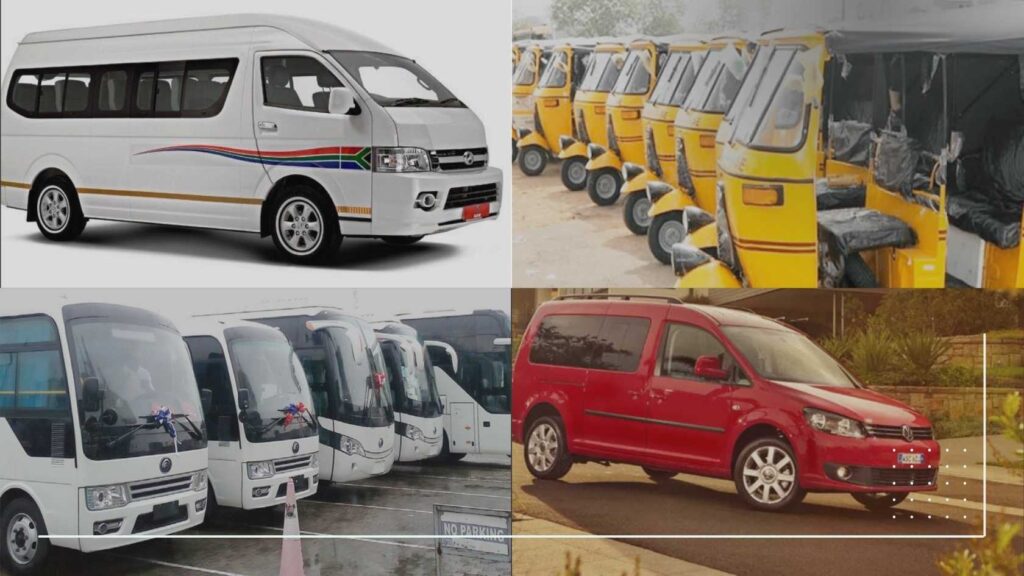Transportation is important because it supports economic growth, creates jobs, and connects people to essential services. Nigeria’s transportation business is a lucrative industry that moves people and goods from one place to another. The sector was valued at $8 billion in 2019, and transportation demand accounted for 8.4% of GDP in 2021. However, the industry faces challenges such as poor regulation, security risks, and inadequate infrastructure.
Nigeria’s transportation is mostly dependent on roads, but some distribution also occurs by rail and air. The railway system has freight train operations in 19 out of the 36 states.
This article will lead you straight to 6 proven ways you can start a transportation business in Nigeria.
Key Takeaways
- Choose a sector within transportation that aligns with your skills and the demand in your area.
- Ensuring vehicle safety and reliability will improve customer satisfaction and reduce breakdowns.
- Use a variety of marketing methods to attract customers and build brand awareness.
- Track expenses, revenue, and profits to maintain a sustainable business.
Different Types of Transportation Businesses You Can Start in Nigeria

There are several types of transportation businesses you can consider in Nigeria, the one you choose depends on the business model you have adopted. Here are the types of transportation businesses you can start in Nigeria:
1. Public Transportation (Buses, Taxis, and Ride-Hailing Services)
You stand a chance to make a lot of money if you go into the transportation business in Nigeria. Public transit is a very profitable part of the transportation business in Nigeria. It thrives more in densely populated cities like Lagos, Abuja, and Port Harcourt.
You can start a public transportation business in Nigeria and meet the needs of millions of travelers every day.
2. Logistics and Delivery Services
The logistics business in Nigeria is thriving. With the growth of e-commerce, logistics businesses are in high demand to deliver goods and parcels. If you choose this path for your transportation business in Nigeria, be sure to have a huge patronage.
3. Haulage Services
Haulage involves safely transporting heavy goods over long distances. Haulage services make life easier for industries like agriculture, construction, and manufacturing.
You can start a transportation business in Nigeria focused on heavy goods and materials and make a fortune.
4. School Transportation
Providing school transport services for students is an essential and reliable business, especially in areas with limited public transportation. If you start a transportation business in this line, you can either choose to work with schools or parents.
5. Car Rental Services
Car rental service is another lucrative part of the transportation business in Nigeria. Renting vehicles for short-term use is a convenient option for businesses and individuals without personal vehicles.
Other types of transportation business in Nigeria include these:
- Freight transport: This includes trucks and vans.
- Specialized transport services: This includes ambulance services, school buses, and airport shuttles.
- Online transport services: This includes ride-hailing, delivery, and carpooling.
- Air transport: This includes domestic airlines that offer flight services across Nigeria’s major cities.
How Can I Start A Transportation Business in Nigeria?

Here are some basic procedures for setting up a thriving transport business in Nigeria:
1. Conduct Market Research
Research the specific sector you’re interested in. This will help you to Identify your target audience, assess the competition, and evaluate demand. For instance, Lagos may have a higher demand for public transportation, while inter-state haulage might be more suitable in industrial areas.
2. Choose a Business Model
Select a business model that fits your chosen sector and budget. You may opt for a single-vehicle operation, a fleet of cars or buses, or partner with other businesses for vehicle rentals.
3. Develop a Business Plan
Take the time to develop a business plan for your transportation business in Nigeria. This will guide your journey to success in the transport industry.
Your business plan should cover the following;
- Business objectives
- Market analysis
- Services offered
- Financial projections
- Marketing strategy
- Budgeting and funding requirements.
4. Register Your Business
Register your transportation business with the Corporate Affairs Commission (CAC) in Nigeria to give it a legal identity. This will also help in accessing loans and partnerships. This also helps cement your credibility and build trust with your clients.
5. Secure the Necessary Permits and Licenses
Transportation businesses require permits. For example, public transport businesses in Lagos must comply with regulations from the Lagos State Transport Management Agency (LASTMA) and Vehicle Inspection Office (VIO).
The permits you’ll get depend on your area of operation. Conduct thorough research and find out the required permits within your area of operation. Research all regulatory bodies applicable in your state of operation.
6. Purchase or Lease Vehicles
The type and number of vehicles you’ll buy depends on the type of transportation business you’ve chosen to venture into. Consider whether you’ll buy them outright, lease, or get them on a hire-purchase arrangement.
Whichever one you choose, ensure they are durable, fuel-efficient, and suitable for Nigerian roads.
7. Hire Competent Drivers and Staff
When starting your transportation business in Nigeria, ensure to hire drivers with valid licenses, a good driving record, and knowledge of local roads. This boosts the quality of your service delivery.
Customer service skills and professionalism are also essential. Give your staff the right training.
8. Maintain and Market Your Business
Regular vehicle maintenance is crucial to minimize breakdowns and ensure passenger safety. Partner with reliable mechanics or set up an in-house maintenance unit if you have a larger fleet.
Use a combination of online and offline marketing strategies. You can leverage social media, billboards, business directories, and partnerships with companies that might need your transportation services.
Necessary Legal and Regulatory Requirements for Your Transportation Business in Nigeria
To operate legally, transportation businesses in Nigeria need to follow specific regulations. There are requirements you must meet to ensure a smooth operation on Nigerian roads. They include:
1. Business Registration
If you want your transportation business to be taken seriously, register it with the Corporate Affairs Commission (CAC). this will enable you to build credibility and boldly seek expansion.
2. Local Permits and Licenses
Every state in Nigeria has its local permits for operation in the transportation business, make sure to get them together with your valid driver’s license. Also, Obtain regular licensing and inspection certificates from the VIO.
3. Insurance
This is usually neglected in Nigeria but is very important. Ensure all vehicles have comprehensive insurance to cover accidents, theft, and damages.
Licenses and regulations for transportation businesses in Nigeria
License and regulations for transportation business include these:
Road Transport License: Issued by the Federal Road Safety Corps (FRSC) for commercial vehicles.
Freight Forwarding License: Granted by the Nigerian Maritime Administration and Safety Agency (NIMASA) for cargo handlers.
CAC registration: Register your business with the Corporate Affairs Commission (CAC).
Tax Identification Number (TIN): Get a TIN from the Federal Inland Revenue Service (FIRS).
Courier and Logistics Regulatory Department (CLRD) license: Obtain a license from the CLRD of NIPOST to run a logistics company. The application fee is ₦20,000.
Air Transport Licence (ATL): Obtain an ATL to conduct air transportation operations. The ATL is valid for five years and can be renewed.
Certificate of Roadworthiness: Obtain a certificate of roadworthiness to ensure that your vehicles are in good condition to operate on public roads.
The governing body for all logistics and transport businesses in Nigeria is The Chartered Institute of Logistics and Transport(CILT).
Where Can I Get Funding To Finance My Transportation Business in Nigeria?
If you are looking to fund your transportation business in Nigeria, consider these options:
1. Personal Savings
If you have set aside some reasonable amount of money to start your transportation business, you will have yourself a soft landing. Self-funding is the simplest option out there.
2. Bank Loans
Nigerian banks offer business loans tailored to transportation businesses. Ensure you have a solid business plan to qualify.
3. Business Grants
You can secure business grants for your transportation business in Nigeria provided your business is registered. Research organizations that give grants to businesses in your secure and send in your application.
4. Partnerships and Investments
Partnering with other business owners or investors can reduce the initial capital burden. Seek strategic partnerships that will help inject more money into your business.
Conclusion
Starting a transportation business in Nigeria can be rewarding and profitable if planned and managed effectively. By understanding the sector, fulfilling legal obligations, and adopting effective marketing strategies, you can establish a thriving transportation venture in Nigeria.
Carefully read through the steps outlined here, it will guide you as you set out to establish your transportation business in Nigeria.
FAQs
What are the best transportation businesses to start in Nigeria?
Taxi and ride-hailing services, logistics and delivery, inter-state transport, trucking and haulage, school bus services, car rental services, etc. are part of the best transportation business to start in Nigeria.
What are the required licenses for transport businesses?
Vehicle registration, roadworthiness certification, driver’s licenses, commercial vehicle permits, business registration with CAC, and special permits for inter-state or heavy-duty operations.
How can I fund a transport business?
Use personal savings, bank loans, government grants, partnerships, lease-to-own agreements, or cooperative society funding.
What challenges should I expect?
High initial costs, fuel and maintenance expenses, traffic congestion, competition, security risks, driver reliability issues, and economic fluctuations.
References
How to start a transport business in Nigeria
Starting a car rental service business


